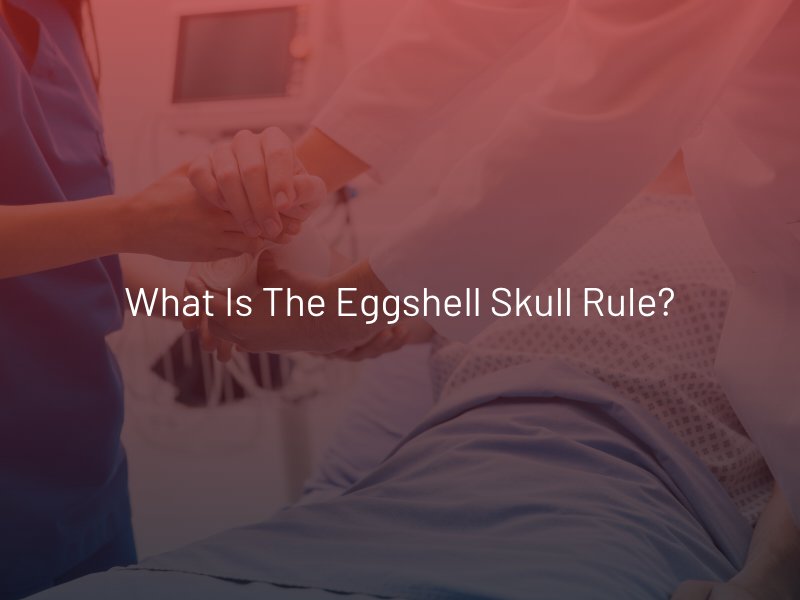What Is the Eggshell Skull Rule?
The “Eggshell Skull Rule” is a longstanding principle in personal injury law that states plaintiffs (victims) must be taken as you find them. In other words, when a plaintiff is more susceptible to injury, the defendant (at-fault party) can still be liable for their damages, even if the accident would not have injured an average person.

How the Eggshell Skull Rule is Applied to Personal Injury Claims
In personal injury cases, the defendant is responsible for making the plaintiff “whole.” What that means is that they are liable for any resulting damages so that the victim is put back into the state they were in prior to the collision or as close to it as possible. As a result, the eggshell skull rule does not allow an at-fault party to evade responsibility for an accident if the victim has a pre-existing condition. These types of victims may be referred to as “eggshell plaintiffs” because their pre-existing injury or illness makes them vulnerable to “crack” like an eggshell.
However, eggshell plaintiffs are still entitled to compensation as long as their pre-existing condition was aggravated or made worse due to the defendant’s negligence. Then it is considered a new injury, but the eggshell skull rule does not apply to any pre-existing conditions that were not exacerbated by the incident involving the defendant.
How the Eggshell Skull Rule Affects Damages
If you are an “eggshell plaintiff,” you may find it challenging to prove how the defendant’s negligence aggravated your pre-existing condition. Establishing which injuries were sustained, when, and the difference in their severity before and after the accident can be complicated. Even so, it is critical that you disclose a pre-existing injury or condition, or you risk your credibility being destroyed. Detailed medical records from before and after the accident will be vital pieces of evidence to ensure you can recover damages. For example:
- Copies of x-rays or other diagnostic images
- Copies of diagnostic tests
- Laboratory results
- Physician reports and notes
- Physical therapy reports
- Testimony from expert medical professionals
- Statements from family and friends on how your pre-existing condition worsened and impacted your life
- Journal documenting your daily pain and symptoms
The more comprehensive the records and your physician’s notes regarding your condition, the better. Medical records from after the accident should explain how your pre-existing condition changed, the new or worsened symptoms you experience, and how your daily life is affected. However, it could be a disadvantage if you were in treatment for your pre-existing condition before the accident caused by the defendant. Their insurer will likely refuse to pay for the medical care you were already receiving and will look for any reason to deny your claim.
Speak to an Experienced Attorney
Having a pre-existing condition should not discourage you from pursuing compensation after a personal injury accident. A Las Vegas personal injury lawyer can help you gather the evidence needed to support your claim, will deal with the insurer on your behalf, and will handle negotiating a full and fair settlement.